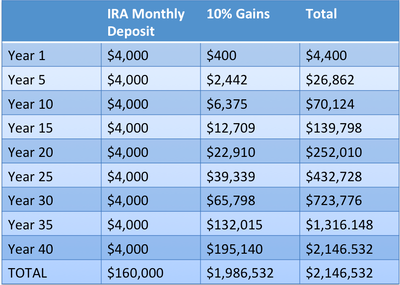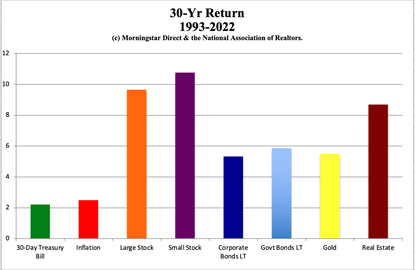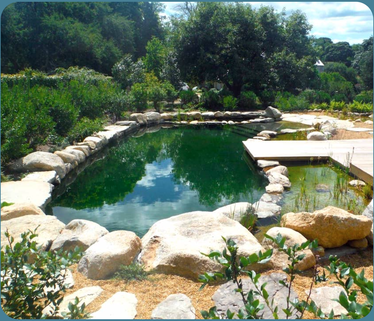|
The Best ROI* (Almost 40%!) & 7 Life Hacks That Save Thousands. *Return on Investment If I told you that you could make almost 40% return on a safe bond, would you want to learn more? What if saving money with brave, unconventional choices worked even better than trying to work your fingers to the bone earning more income? While not every life hack mentioned below will be right for your situation, and it’s easy to stay in our status quo even when life doesn’t add up, I encourage you to read through each possibility and dive in deeper on the ones that have even an inkling of interest to you. Breaking old habits isn’t easy, but when we do, there can be rainbows, butterflies and even a pot of gold on the other side. There can be literally tens of thousands of dollars that we can repurpose every year away from our “bills”” toward things that we love more. We might not think that we have any choice in the matter. However, each bill we toss out the window can bring thousands, sometimes even tens of thousands of dollars every year, that we can spend and invest on things that bring greater dividends to our lives. Below are just a few samples of what’s possible, alongside real-life stories of people who have embraced and benefited from them. 7 life Hacks that Save Tens of Thousands of Dollars Annually and 1 Safe “Bond” that can Earn a 40% ROI Solar College Commute Health Insurance Housing Energy Efficiency Water And here is more information on each point. Solar Saves Thousands Annually. C’s solar Last year a friend installed solar. She’s absolutely thrilled with the results. She is saving $7200 every year. Her payback time on the solar is 2.6 years. Thereafter that $7200/year in savings is hers to keep and spend on things she likes a lot more than utility companies. Here’s the math. Cost of the panels $26,667 Tax credit $8000 Net cost $18,667 Annual savings on her electric bill: $7200 Payback time: 2.6 years Annualized gain if this were a fixed income investment (after the payback): 38.6% Also good for the planet. Clearly, receiving almost 40% return on investment is one of the best returns out there. Additionally, your solar panels are not going to be subject to the wild rides of the Wall Street rollercoaster. However, since your stock broker/salesman cannot offer you solar panels and does not benefit from suggesting them, you’re unlikely to hear this formula and amazing ROI. Additionally, there is a lot of noise, sponsored by old school utility and oil/gas providers, that tries to convince us (or force us) not to buy solar. The person who sells you solar panels is also a salesman. That’s why it’s important for us to go through the solar checklist before we get our quote. Read the “How to Save Thousands Annually with Smarter Energy Choices” chapter of The ABCs of Money, 5th edition. Be sure to consider whether or not you’re going to power your electric vehicle with solar. College Many teens get roped into the college experience, whether or not it is right for them. If we exit college with massive debt and a monthly bill that forces us to move into our parent’s garage, we may not think college was worth it. College debt forced Millennials to delay their home purchase by an average of 7 years. The ABCs of Money for College outlines many steps that parents and teens can take to get a better degree for half the cost, and ways to determine the best next step after high school. Is a gap year a good idea in order to gain perspective on life? Is a trade better matched with your teen’s passions and talents? What are the jobs of tomorrow, and how can that help to inform our decision-making? How much should you put into the college savings account, and what kind of return should you expect? All of that (and more) is included in The ABCs of Money for College. Parents should start the process when their child is born. Reduce, Green or Eliminate your Commute Most people spend almost $8000 every year on their personal vehicle. In a recent coaching session, one parent was complaining that his car insurance doubled from $4000 a year to $8000 when he added a teen driver to the coverage. The family of 4 has four cars in the family in the city that has very good public transportation and a lot of bike lanes, bike share, and e-scooters. That extra $4000 in insurance also doesn’t include the car payments, the gasoline and the maintenance on the vehicles (or the 2nd teen who is almost driving age). Imagine if $4,000 were put into their college savings plan or a dependent IRA, where it has the possibility to compound gains, instead of flying out the window, making the car insurance company rich. When I spoke with the Mayor of Santa Monica a few years ago, he shared that his family of four adults has five bikes and one car. Occasionally, someone will have to call a cab or rideshare. However, the savings, including cabs, is still a fraction of what it would be to insure four cars and drivers. I personally use public transportation, bikes, e-scooters and walking for the majority of my transportation needs. Occasionally, I rent a car. My transportation costs are a fraction of what they were before, and I enjoy greater health as a result of peddling to my destination, instead of sitting in gridlock traffic. Whether you work from home a few days a week, walk or bike for local errands, consolidate your driving needs to one car or become a bike commuter, is there a way to stop making the gasoline and car insurance company rich and live a richer life? Health Savings Accounts Health savings accounts offer many cost-saving benefits. They work best if you and your family are healthy. You’ll still have the protection of health insurance – with a much higher deductible (which can be covered by the money in your HSA). Benefits of HSAs · Dramatically lower health premiums · Build up your own long-term healthcare retirement account · Tax credit · Stop making the health insurance company, rich, and use the thousands of dollars in annual savings to enrich your own life Learn more at IRS.gov and in the 1st chapter of The ABCs of Money, 5th edition. Community Housing Multigenerational housing is gaining in popularity. When we stop making the landlord rich, we can start building up equity with the goal of owning our own home free and clear before we retire. Thinking bigger often affords us even more personal space and time. Many times, the most expensive housing option is the smallest one. Splitting a much bigger space can result in $19,000 saved annually for each family in a shared home, with other benefits as well. I recently discussed this with Carmel Boss, the founder and CEO of Co-Abode.org. Watch our conversation on my YouTube.com/NataliePace channel. Did you know that women in India are more likely to be CEOs than in America? Multigenerational homes, where the grandparents provide childcare and do the cooking and cleaning, free up the mother to pursue her career goals. What could you do with $19,000 in annual savings? Is that enough incentive to sound the possibilities of how shared housing might work for you? Energy Efficiency We talked about how solar is saving C $7200 every year. Solar is great for sunny states but might not be the best choice for your neighborhood. However, everyone can benefit from smarter energy choices. Even without solar, energy efficiency upgrades to our own home can save thousands of dollars on the electric bill annually. It is also very good for the planet. I go over many energy saving tips in The ABCs of Money, 5th edition. If you’ve never learned the difference between your energy hogs and vampires, and how simple gadgets can save massive megawattage, this information will be a budget-changer. Native, Regenerative Landscaping Water is becoming scarcer, is in high demand and is expensive. Yet, when I consulted with Mark Nelson, a Biospherian and the author of The Wastewater Gardener, I discovered that he had managed water for two years in a closed environment when eight humans were locked inside the Biosphere 2. (Click to watch our Earth Gratitude feature with Mark and others.) Many cities, especially those where drought is a concern, offer incentives for getting rid of the carpet of grass that so many homeowners have. Good Neighbor Gardens is one nonprofit that helps homeowners to transition from wasteful expensive landscaping to farming their own yard. Adding in landscaping that is appropriate to your microclimate saves a lot of money and water, and also attracts important pollinators, birds, and other wildlife that are essential to biodiversity. Imagine if you save money on your water and your food bill. Another benefit of having native plants, mulch, and other carefully crafted gardens is that they absorb water better in case of the occasional deluge that can happen even in drought areas. Grey water recycling is another great budget hack. Shower, laundry and sink water can be used to water our gardens. Using a simple hose from the washing machine for this purpose is very affordable. However, an investment in proper plumbing can pay for itself quickly, offering cost savings for years to come. Pools and jacuzzis were popular back in the day, but are energy and water hogs. Many owners are spending an extra $1,200 or more annually on electricity and close to that amount on water and chlorine. Natural pools take away the costs of electricity and chlorine, and are clearly a better choice for water conservation and sustainability. As with many remodeling projects, the energy and water savings will pay back the investment in a certain timeframe, and thereafter you’ll have that money to keep. Bottom Line Sustainability and financial freedom go hand-in-hand. We can save thousands of dollars annually with smarter energy and budget choices. That means we stop making billionaires rich, and end our financial support of fossil fuel companies and polluters. We then have a lot more money for things we love more than plastic, gasoline, banks and insurance. These choices are also healthier for our home planet. Join us at our New Year New You Financial Freedom retreat, which has a very strong focus on the environment, teaching us how to protect our wealth, earn money while we sleep, save thousands annually and live a richer life. Learn more at https://www.nataliepace.com/. For daily money tips, follow me at @nataliewynnepace on my Instagram Broadcast Channel. Join us at our Jan. 13-15, 2024 New Year, New You Financial Freedom Retreat. Get valuable data and tools on how to best invest and monetize real estate. Learn nest egg strategies, how to get hot and diversified (including in EVs, crypto and AI), and what's safe in a Debt World. You'll even discover how to save thousands annually with smarter big-ticket choices. Yes, it's a complete money makeover. Email [email protected] to register. Learn the 15+ things you'll master and read testimonials in the flyer (link below) and on the home page at NataliePace.com. Register with friends and family to receive the best price. "Ten minutes into the first day I was already much smarter about investing than I ever thought I would be in my life and I knew I was in exactly the right place at this retreat. I am amazed at how EASY and FUN it is to make my money work for me and those I love. I think this kind of information should be compulsory in schools. I wish I'd learned this sooner." CM  Join us for our Online New Year, New You Financial Freedom Retreat. Jan. 13-15, 2024. Email [email protected] or call 310-430-2397 to learn more. Register with friends and family to receive the best price. Click for testimonials, pricing, hours & details.  Join us for our Restormel Royal Immersive Adventure Retreat. March 8-15, 2024. Email [email protected] to learn more. Register with friends and family to receive the best price. Click for testimonials, pricing, hours & details. There is very limited availability, and you must register early to ensure that you get the exact room you want. This retreat includes an all-access pass to all of our online training for a full year for two!  Natalie Pace at the Ritz Carlton, Powerscourt, Ireland. Photo by: Marie Commiskey. Natalie Pace at the Ritz Carlton, Powerscourt, Ireland. Photo by: Marie Commiskey. Natalie Wynne Pace is an Advocate for Sustainability, Financial Literacy & Women's Empowerment. Natalie is the bestselling author of The Power of 8 Billion: It's Up to Us and is the co-creator of the Earth Gratitude Project. She has been ranked as a No. 1 stock picker, above over 835 A-list pundits, by an independent tracking agency (TipsTraders). Her book The ABCs of Money remained at or near the #1 Investing Basics e-book on Amazon for over 3 years (in its vertical), with over 120,000 downloads and a mean 5-star ranking. The 5th edition of The ABCs of Money and the 2nd edition of Put Your Money Where Your Heart Is were released in 2021. Follow her on Instagram. Natalie Pace's easy as a pie chart nest egg strategies earned gains in the last two recessions and have outperformed the bull markets in between. That is why her Investor Educational Retreats, books and private coaching are enthusiastically recommended by Nobel Prize winning economist Gary S. Becker, TD AMERITRADE chairman Joe Moglia, Kay Koplovitz and many Main Street investors who have transformed their lives using her Thrive Budget and investing strategies. Click to view a video testimonial from Nilo Bolden. Check out Natalie Pace's Substack on Apple and Spotify. Watch videoconferences and webinars on Youtube. Other Blogs of Interest Portugal Eliminates Tax Advantages for Ex-Pats. Holiday Gift Giving on any Budget. Including No Budget. Once in a Century Events are Happening Every Day. The Crypto Winter Enters Its 3rd Year. Earn $50,000 or More in Interest. Safely. Finally. Freebies and Deals for Black Friday and Cyber Monday. Auto Strikes End. EV Price Wars Continue. WeWork's Bankruptcy. Half-Empty Office Buildings. Problems in our Personal Wealth Plan. Solutions for Unaffordable Housing. The Magnificent 7 Drag NASDAQ into Another Correction Cruise Ships Give Freebies to Investors. Should You Take the Bait? Should You Take a Cruise? Bonds. Banks. The Treacherous Landscape of Keeping Our Money Safe. 7 Rules of Investing Air B N Bust? Santa Rally 2023 or Time to Get Defensive? Barbie. Oppenheimer. Strikes. Streaming Wars. Netflix. Monero: A Token of Trust? 13 Lifestyle Choices to Reduce Waste, Pollution & CO2 & Save a Boatload of Dough. China Bans Apple 11-Point Green Checklist for Schools. Artificial Intelligence and Nvidia's Blockbuster Earnings Report Biotech in a Post-Pandemic World 10 Wealth Secrets of Billionaires and Royals. What Happened to Cannabis? Bank of America has $100 Billion in Bond Losses (on Paper) The USA AAA Credit Rating is on a Negative Watch. Lithium. Essential to EV Life. I'm Just Not Good at Investing. Investors Ask Natalie. Should I Buy an S&P500 Index Fund? Investors Ask Natalie. Bonds Lost More than Stocks in 2022. 2023 Company of the Year Do Cybersecurity Risks Create Investor Opportunities? Writers Strike, While Streaming CEOs Rake In Hundreds of Millions Annually. I Lost $100,000. Investors Ask Natalie. Artificial Intelligence Report. Micron Banned in China. Intel Slashes Dividend. Buffett Loses $23 Billion. Branson's Virgin Orbit Declares Bankruptcy. Insurance Company Risks. Schwab Loses $41 Billion in Cash Deposits. Fiat. Crypto. Gold. BRICS. Real Estate. Alternative Investments. BRICS Currency. Will the Dollar Become Extinct? The Online Global Earth Gratitude Celebration 7 Green Life Hacks Fossil Fuels Touch Every Part of Our Lives Are There Any Safe, Green Banks? 7 Ways to Stash Your Cash Now. Lessons from the Silicon Valley Bank Failure. Which Countries Offer the Highest Yield for the Lowest Risk? Solar, EVs, Housing, HSAs -- the Highest-Yield in 2023? Why We Are Underweighting Banks and the Financial Industry. 2023 Bond Strategy Emotions are Not Your Friend in Investing Investor IQ Test Investor IQ Test Answers Bonds Lost -26%, Silver Held Strong. Save Thousands Annually With Smarter Energy Choices Is Your FDIC-Insured Cash Really Safe? Money Market Funds, FDIC, SIPC: Are Any of Them Safe? My 24-Year-Old is Itching to Buy a Condo. Should I Help Him? The 12-Step Guide to Successful Investing. The Bank Bail-in Plan on Your Dime. Rebalancing Your Nest Egg IQ Test. Answers to the Rebalancing Your Nest Egg IQ Test. Important Disclaimers Please note: Natalie Pace does not act or operate like a broker. She reports on financial news, and is one of the most trusted sources of financial literacy, education and forensic analysis in the world. Natalie Pace educates and informs individual investors to give investors a competitive edge in their personal decision-making. Any publicly traded companies or funds mentioned by Natalie Pace are not intended to be buy or sell recommendations. ALWAYS do your research and consult an experienced, reputable financial professional before buying or selling any security, and consider your long-term goals and strategies. Investors should NOT be all in on any asset class or individual stocks. Your retirement plan should reflect a diversified strategy, which has been designed with the assistance of a financial professional who is familiar with your goals, risk tolerance, tax needs and more. The "trading" portion of your portfolio should be a very small part of your investment strategy, and the amount of money you invest into individual companies should never be greater than your experience, wisdom, knowledge and patience. Information has been obtained from sources believed to be reliable. However, NataliePace.com does not warrant its completeness or accuracy. Opinions constitute our judgment as of the date of this publication and are subject to change without notice. This material is not intended as an offer or solicitation for the purchase or sale of any financial instrument. Securities, financial instruments or strategies mentioned herein may not be suitable for all investors. Comments are closed.
|
AuthorNatalie Pace is the co-creator of the Earth Gratitude Project and the author of The Power of 8 Billion: It's Up to Us, The ABCs of Money, The ABCs of Money for College, The Gratitude Game and Put Your Money Where Your Heart Is. She is a repeat guest & speaker on national news shows and stages. She has been ranked the No. 1 stock picker, above over 830 A-list pundits, by an independent tracking agency, and has been saving homes and nest eggs since 1999. Archives
July 2024
Categories |












 RSS Feed
RSS Feed